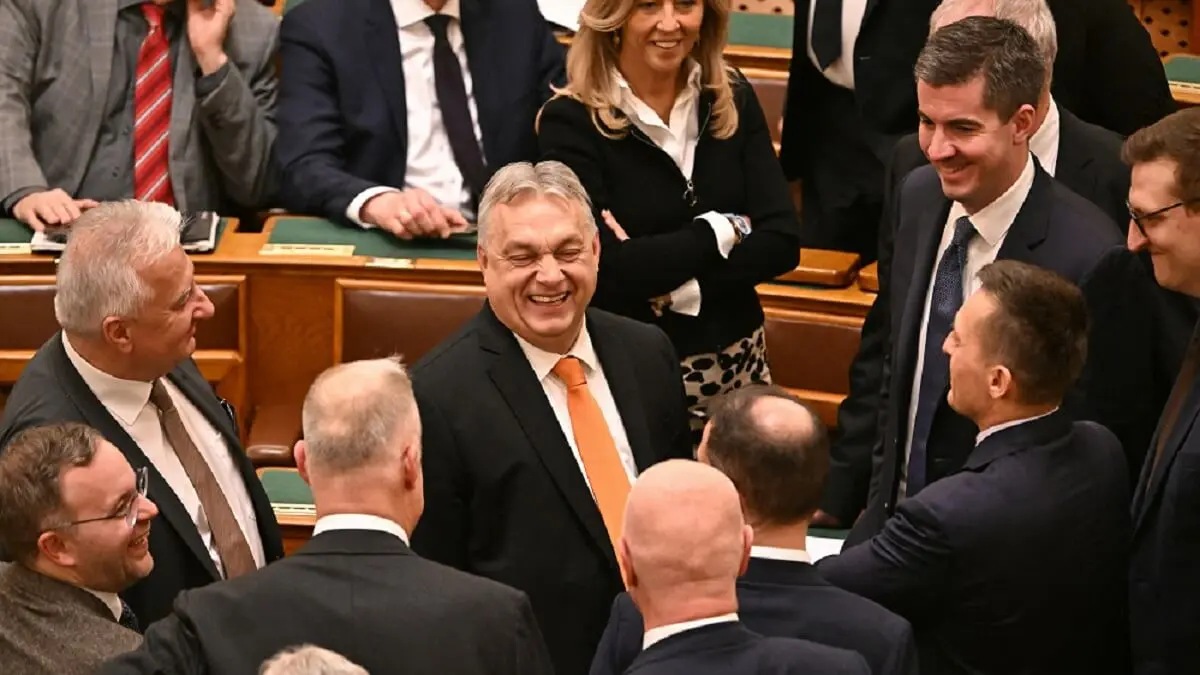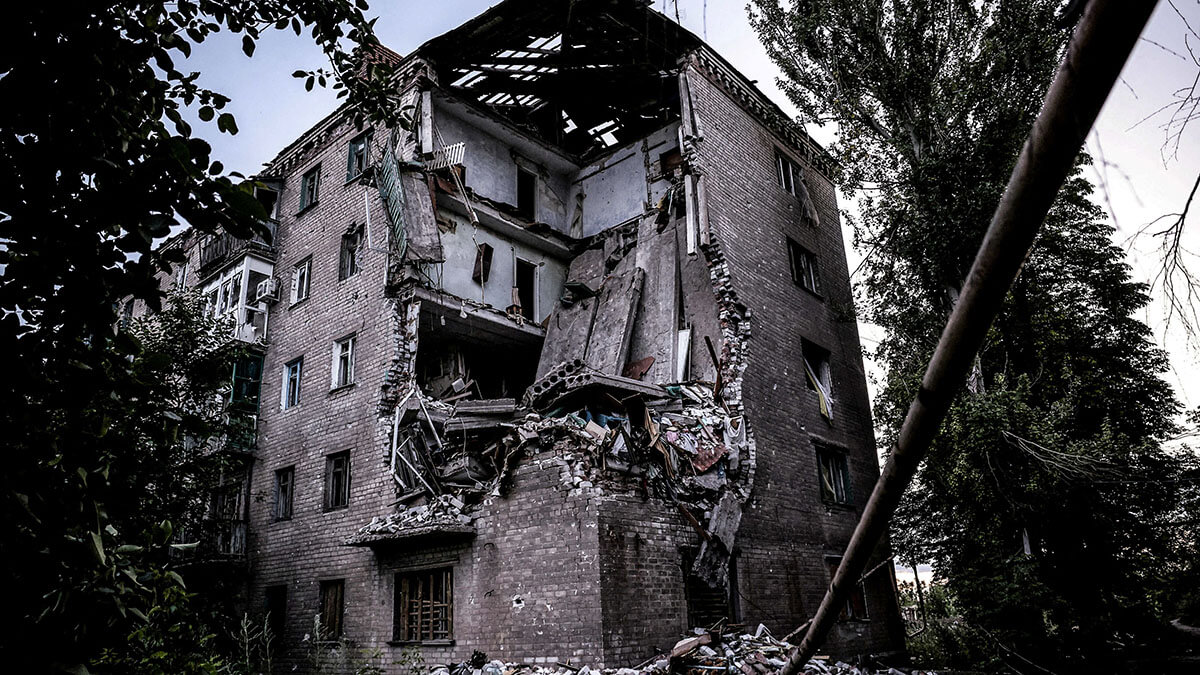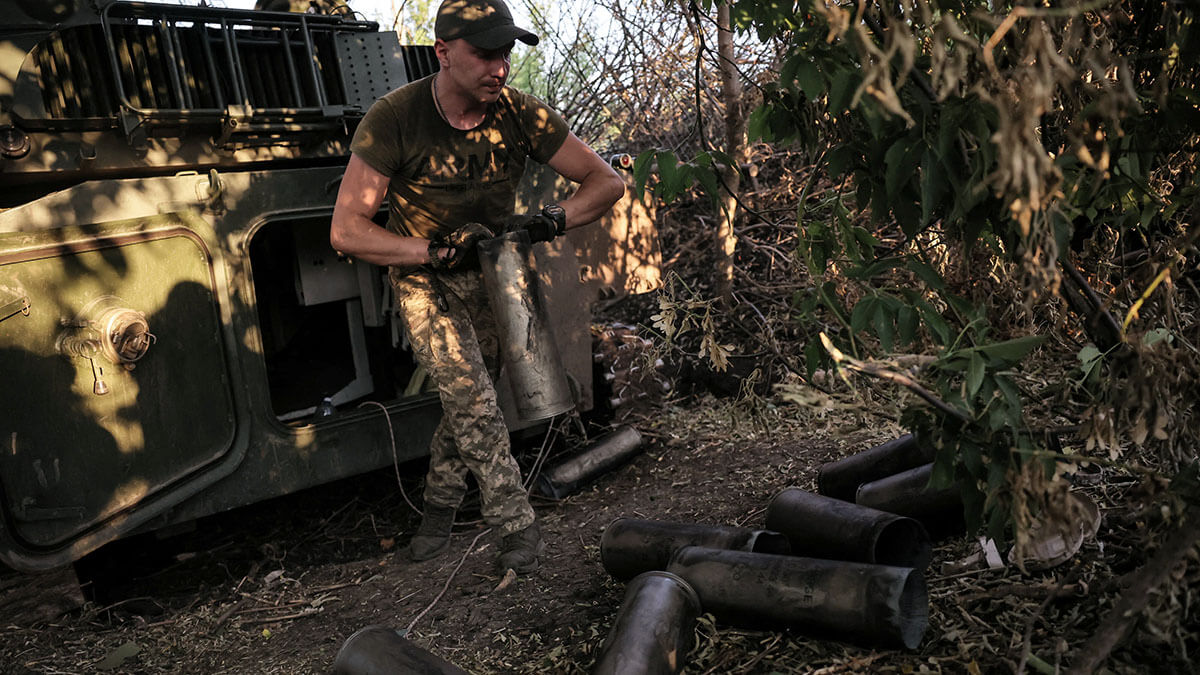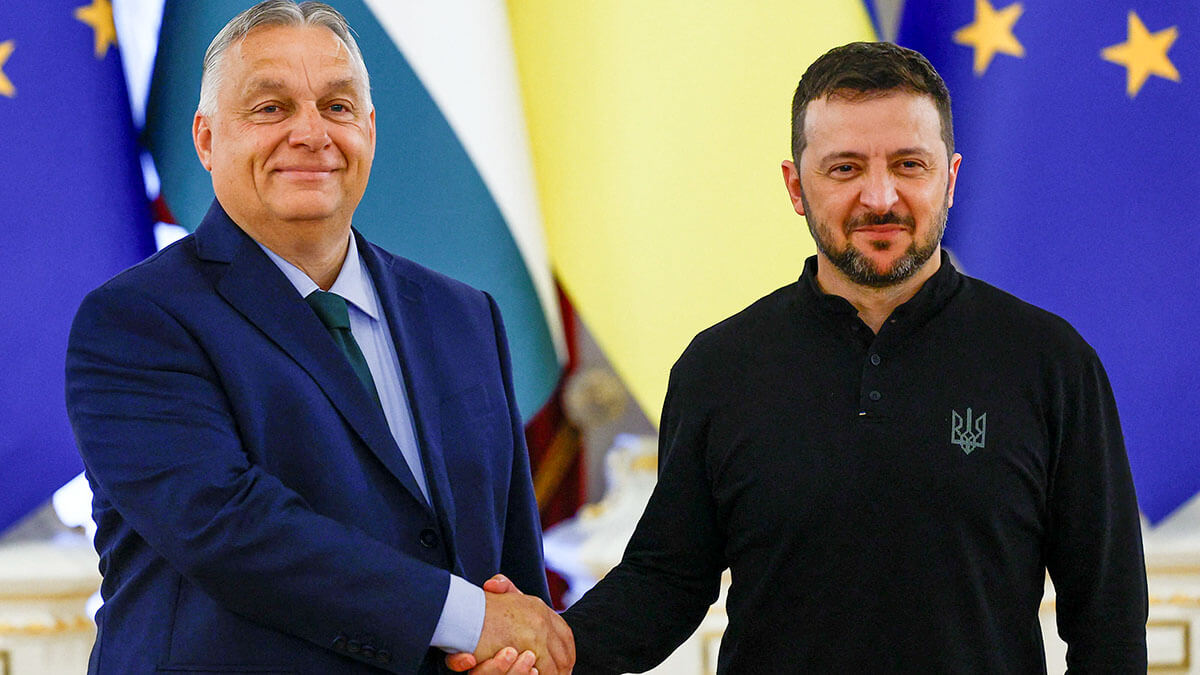"Viktor Orbán professes loyalty to Russia"

The journalist and contributor to the magazine Atalayar, correspondent in Ukraine since the beginning of the conflict, analysed the global situation following the announcement of the far-right Viktor Orbán, Prime Minister of Hungary, as the new President of the European Union for the next six months.
Maria, partial withdrawal of Ukrainian troops from Chasiv Yar, and a lot of movement on all battle fronts as the Ukrainian army reorganises and tries to reorganise itself for the summer.
That's right. The new commander-in-chief of the Ukrainian Armed Forces, General Sirsky, is continuing with his aim to preserve the lives of his soldiers as much as possible, now that there is a shortage of soldiers in the ranks. This is a trend he announced when he ordered the withdrawal from Avdivka and his army abandoned the north-eastern sector of the town of Chasiv Yar.
Chasiv Yar is a small town practically next to Bajmut in the Donbass, where the Ukrainians had managed to build a defensive buffer after the fall of Bajmut a little over a year ago. The place had been under siege for months. Back in May, we were told that access was restricted because of the continuous artillery attacks and the number of Russian drones armed with explosives flying over the town, and it was only a matter of time before Chasiv Yar fell.
But even so, this is very worrying news because, despite the fact that it is a very small town and is already completely destroyed, there is nothing to salvage, it would open the way for the Russians to the sites of Kramatorsk and Sloviansk, which are the two remaining major Ukrainian government-held towns in northern Donetsk.

The withdrawal is partial. They've left the river bank that makes a bit of a natural defence between that closer part of Bajmut and what is the town of Chasiv Yar. The Ukrainian troops have withdrawn from that riverbank and it seems that they are concentrating or regrouping in the western part of the city, which means that they are not giving it up for lost, they are going to continue trying to defend that square as far as possible because if the Russians manage to take Chasiv Yar, they would have a direct route through Constantiniana to the cities of Kramatorsk and Sloviansk.
Nor is there any good news from the towns of Torez, Pokrovsk and Niu York, which are the three towns immediately to the south, following the front line from Donetsk, where the Russian artillery does not stop day or night and the Ukrainian troops are under heavy pressure. It should be remembered that Russia opened a breach in the Kharkov front line on 10 May and that this forced the Ukrainian army to position some of its best brigades there, weakening the battle lines in the Donbass region, which is what Putin is taking advantage of to try to advance there.
The Kremlin is using this divide and rule strategy, which has worked very well with the Kharkov offensive, and which it is trying to replicate in regions further north, such as Sumy, where it has positioned more Russian troops on the border and has once again forced the Ukrainian army to take several battalions there in case they try to open an offensive.
Precisely, one of the brigades they have positioned, which was working in Chasiv Yar, is one of the brigades that worked with them regularly, and talking to one of their officers about how the situation was in Sumy and why the urgency of rushing from Chasiv Yar to position themselves there, nothing is happening in Sumy, they're in the middle of a forest, armed to the teeth and waiting, but in the event that Russia starts a new offensive, trying to open a new breach there, they have to be there, there have to be military personnel there, fortifying those defences against the presence and the agglomeration of more Russian troops on that front. This means that the lines in the Donbass will become thinner and Russia will take advantage of this to make small advances at great personal cost, but at the end of the day advances in the region of Donbass that it has set out to conquer completely.

Important geopolitical movements that influence the war, for example, the Hungarian Prime Minister, Víktor Orbán, who holds the presidency of the European Union, a six-month presidency and who inaugurated his mandate by going to Ukraine, but immediately afterwards he went to Russia.
Viktor Orbán is the man who has systematically voted against sending aid to Ukraine from within the European Union since the Russian invasion began. A conservative and ultra-right-wing figure who is openly pro-Russian, he has never hidden who he is loyal to, and it is not to Europe, it is to Russia, and since the EU presidency is rotating, it is Hungary's turn, and for the next few months we will have a political puppet of Vladimir Putin occupying this post, which, although it is true that it is more diplomatic than anything else, because in the end decisions are taken in other European Union bodies, will leave us with photos such as the meeting held with the president of Russia.
Before going to Moscow, he had the courtesy to come to Kiev, he visited Ukraine last Tuesday, and the look on his face in the official photo with Zelensky says it all. He says that there is discomfort, that there is tension, that there is a serious gesture and that there will be no collaboration during the next six months in which he will be at the helm of the EU presidency. Faced with the criticism that arose after seeing this photo with Zelensky, Orbán justified himself by saying that the press conference was a little cold because expectations were very high and that he was not the typical Western leader who came to applaud Zelensky.
Of course not, Viktor Orbán is the typical European leader who comes to applaud Vladimir Putin, who is much, much better. The fact is that during his visit to Ukraine he assured that he is interested in ending the war as soon as possible, but at no time did he claim the territorial integrity of Ukraine, which is the country being invaded by Russia, and proposed an unconditional ceasefire, to which Zelensky responded that he would think about it, since ceasefires with Russia usually end badly for the attacked countries. Before leaving Ukraine, Orbán left pearls such as that Europe's biggest problem is the war in Ukraine, but that this will be solved after Trump's election victory in the United States.
He is an optimist who will hold the presidency of the European Union for the next six months and everything suggests that the aid that has to come from the European Union will try to slow it down as much as possible and continue to sow the Euroscepticism that he has been displaying since he became Prime Minister of Hungary.

Maria, among Ukrainians, how is this news related to international politics received?
It is not well received. In Ukrainian cities we are still dealing with major electricity restrictions, with price increases that are reflected in supermarkets, but even more so in the price of rents, which have skyrocketed in the capitals, especially in the centre and west of the country, because that is where more and more people are fleeing from areas close to the front line because of situations that are happening in Donetsk, where Russian troops are advancing and people are fleeing their homes, or people fleeing from cities like Kharkov or Dnipro, which are being systematically bombed every day, causing dozens of wounded, causing deaths and leaving Dantesque images of residential buildings completely bombed.
And to this situation, which is already extensive in itself in the coexistence in the cities, is added the forced mobilisation that is further straining the social climate. Here in Ukraine they are recruiting an average of about 250 men per day across the whole territory of Ukraine. It's not much compared to the 1,000 that Russia enlists every day, but in a much smaller population, such as Ukraine, it is noticeable.
These moves in international politics, because they know that they directly affect the military and economic aid that the Ukrainians are talking about these days, are aware that with Orbán in the presidency of the European Union this aid could be delayed. And, above all, they are aware that the upcoming US elections could turn this war around, a turn for the worse, no doubt, if Trump wins and unilaterally cuts off the aid that is already arriving to Ukraine with a long delay.
For that is another of the things they were complaining about back on the front lines these days. The officers I was able to talk to told me that the weapons and ammunition are not arriving at the pace they expected, that there are still very long delays and that this makes it even more difficult for the Armed Forces, who are having to spread out over many points on the front lines, which means that the pressure on each of these points is much, much higher.









